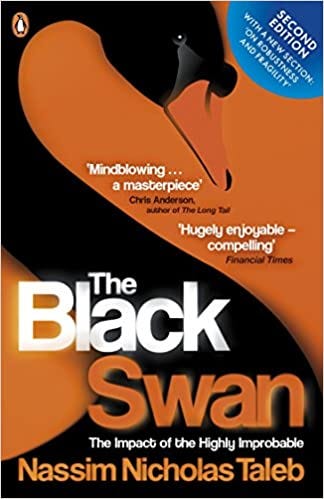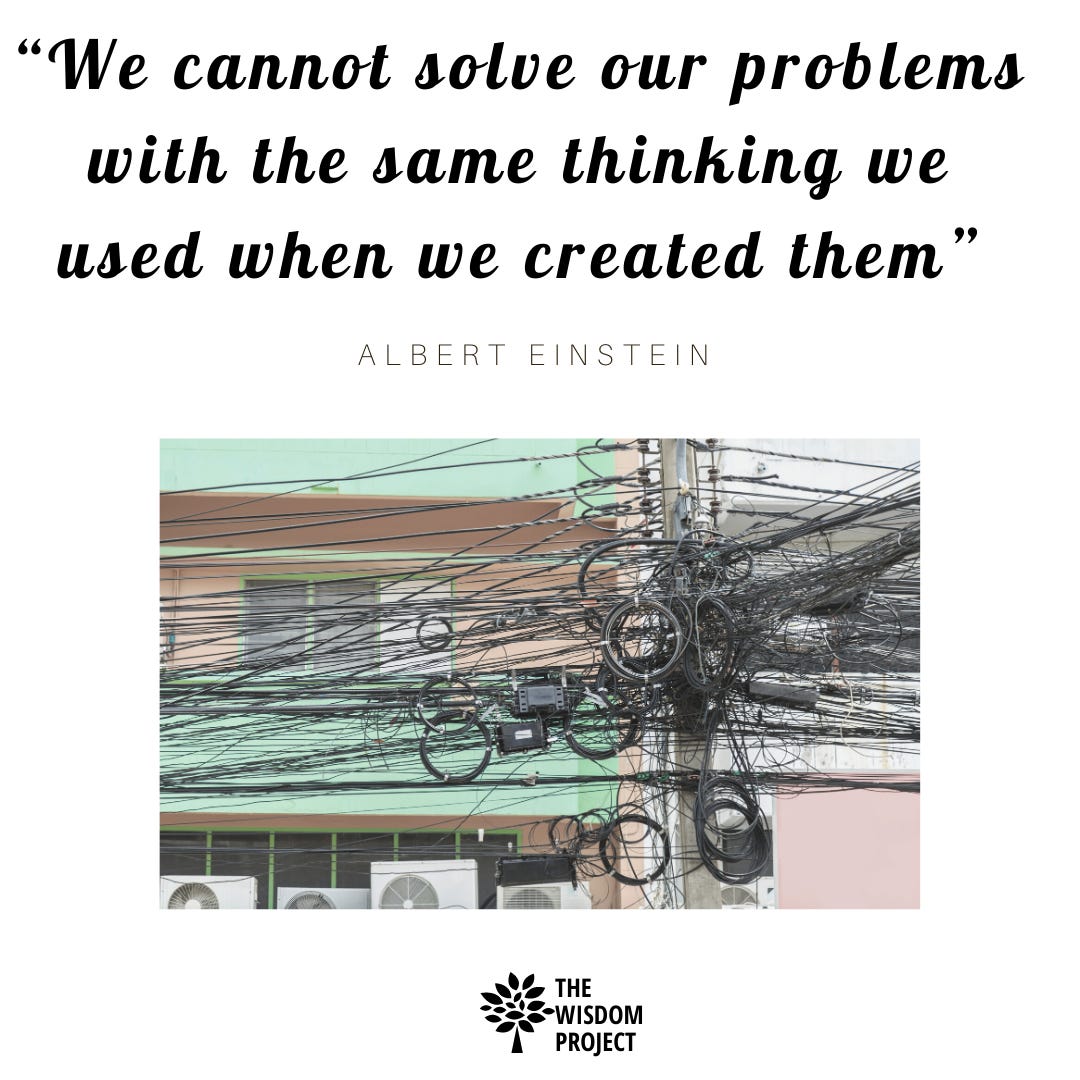Are you wearing face masks these days?
Do you think governments should mandate citizens to wear masks when outside in public places?
Will such a mandate infringe your individual rights and freedom? Will you go out to protest against such a mandate by your government?
Last week, I came across this brilliant meme—
“More people are killed by the Flu” has become the go-to argument for many people these days. People who are not comfortable with the massive change that this pandemic demands of them.
This, and other such lazy arguments stem from their reluctance to adapt to an unprecedented situation in their life.
Think about the unwanted discomfort people are having to go through — forced social distancing and isolation, living away from loved ones for long periods of time, wearing masks, washing hands, uncertainty around a vaccine, the threat to their life by an invisible infinitesimal virus.
Add to that the risk to their jobs, high economic uncertainty, mixed, and often confused messaging from the authorities. All these factors have broken down any existing and comforting models of the world that people had learned growing up.
Adapting to newer models of thinking well into adult life is a daunting challenge for all of us.
And yet, that is what we all must do in the wake of this pandemic.
We all have our wish-lists of stuff to do when things “get back to normal”.
We implicitly (perhaps inaccurately) believe that this virus is just a phase, and the world would be back to the way it was as soon as we have a vaccine or a cure.
Some of the more intellectually honest among us are spending their time in isolation searching for the “new normal”.
While they have the audacity to admit to themselves that things have changed forever but they still have the naïveté to believe that we can figure out the new models of the world in the middle of the pandemic.
They too seek the comfort of the known, the familiar and the “normal”.
The harsh truth might be that the new normal lies way beyond our imaginations.
The world after Corona will certainly be very different from the world before Corona. And it may also be way different than the world during Corona.
That is the discomforting feeling of an “unknown unknown” we must learn to live with.
The Corona Virus has lessons for all of us, lessons on how to think about viruses and pandemics, as well as lessons on how to think about economic uncertainty, probability, globalization, and our own personal health.
This virus is perhaps the greatest test of our understanding of risk as a concept. A global social experiment being run where the consequences of failing can be dire.
The pandemic has been called a Black Swan, an unforeseen, highly improbable but impactful event.
It has also been called a Gray Rhino, an obvious but often neglected threat.
These are models that can help us think better about such high impact events at a global as well as a personal level.
Related:
How to Deal with Black Swan Blindness | Wisdom Letter #81
Today on The Wisdom Project, we go looking for models to think about Covid. We try to understand why we are blind to probability and find comfort in certainty.
We see why Covid is not a black swan and what could have been done to prevent the damage. We see how it is indeed a gray rhino and what can we do to think better about such events in the future.
And.
We meet a new creature, the elephant in the room that nobody seems to be talking about.
Read On.
#1
Certainty Over Accuracy
We love stories, we love narratives.
We love them so much that we believe them even when they aren’t true, or accurate. Just look at the narratives our politicians build, or our religious scholars for that matter.
Our love for narratives is one of the most well tested mechanisms of large scale influence in our history.
And its this tendency of ours to hold onto narratives that prevents us from understanding probability.
Don’t get me wrong, we all understand probability at an academic level. We can solve math problems around probability with a certain level of ease. But when it comes to using probability in our day to day thinking we find ourselves in a tangle.
What is the probability that I will get the virus if I don’t wear a mask vs if I do wear a mask?
What is the probability of the world reaching a million Covid deaths by August?
What is the probability that I will be one of those million?
These are tricky questions, and trying to think of their answers can cause of lot of discomfort to our brain. We end up craving for certainty in such a scenario. We just want someone to tell us “Will I get the virus or not?” “Can the virus kill me or not?”
We ask straightforward questions and expect 100% answers, not probabilistic ones. And those can be very polarizing and political answers. They can pit people against each other, lead to pointless draining debates and protests.
You will probably not get the virus, and even if you do, you will probably not die from it. But if you take that statement and ignore the bold “probably”s, if you become reckless, if you go out without a mask and indulge in large gatherings, then you probably will get the virus.
Yes, its twisted.
Read this post from Morgan Housel where he breaks down how and why we are blind to probabilities. He explains the idea through the lens of financial markets, which are a great testing ground for probabilistic thinking in their own right.
Check it out—
Why We’re Blind to Probability | Morgan Housel
#2
Its not a Black Swan
Nassim Nicholas Taleb is “irritated”.
He wrote a paper in January warning the world of the dangers of the virus. In March he gave an interview where he said “Governments didn’t want to spend pennies in January, now they are going to have to spend trillions”
He came up with the idea of The Black Swan in his 2007 book of the same name. The concept is essentially of highly improbable events wreaking havoc and causing global disorder.
Very soon after the book, we saw the global financial crisis, and the book and the idea immediately became a blockbuster.
The problem is that the concept of the black swan ended up giving an easy cop-out to reckless financial and administrative behavior. Every unforeseen tragedy since then has been termed a black swan by some “expert” somewhere.
It has given an easy excuse for the people in-charge to shirk responsibility and just say — “Hey it was a black swan, nobody could have predicted it.” It was used during the great financial crisis, and it is being used during the pandemic.
While the idea of the black swan really took off, Taleb’s message of building redundancy and resilience to prepare for black swans has gotten lost somehow.
He uses nature to explain the importance of building resilience. He argues that mother nature has redundancy built into itself.
He gives an example of the human body. The fact that we have two kidneys means we can live even if one malfunctions. As an efficient human I can ask — “Why do we need two at all, when one suffices?”
If humans had to design the human body, we would only build a single kidney, as that was the least work required to make a functional human, that was the “minimum viable product” right?
If there’s one lesson we take from this pandemic, it should be that we need to build redundancies in our healthcare systems. We need extra hospitals, beds, ICUs, ventilators, PPEs, and most of all, we need extra healthcare workers and doctors.
If we can spend billions on nuclear weapons, we can also spend billions on building healthcare redundancies.
And that might actually prevent the next Black Swan.
Checkout this article in the New Yorker that features Taleb’s interview and explains the paper he wrote in January.
The Pandemic Isn’t a Black Swan but a Portent of a More Fragile Global System | The New Yorker
Also, get his book. Its a bit dry and academic, but there are plenty of gems of insights thrown around in every chapter. His disregard for authority and intellectual idiots is highly enjoyable.
#3
The Gray Rhino effect
Michele Wucker has had a busy pandemic.
She is the creator of the concept of The Gray Rhino with her book of the same name in 2016.
Its a 2 ton threat right in front of us, stomping on the ground, horns pointed at us, ready to charge, but we still ignore it.
We can choose to sway out of its way if we care to act fast enough. But we often don’t because the incentives in our systems are not aligned towards swaying away.
Ever since the virus hit, Ms Wucker has been explaining this idea to anyone who would care to listen. There is merit in the idea that the Corona Virus is a gray rhino.
After all Bill Gates predicted a viral pandemic in his 2015 Ted Talk. The epidemiology community has been on the lookout for “Disease X” for a long time.
It was not a matter of if, it was only a matter of when.
And yet, we were under-prepared for the pandemic, we didn’t act fast enough when we needed to, and most of the world outside the medical community had no idea of how dangerous it could be.
The lesson to learn from the gray rhino effect is that the time to prepare for future gray rhinos is right now. And there are plenty of them to worry about. Climate change being the most dangerous of them, and the most ignored as well I guess.
Ms Wucker writes an annual report of 5-10 gray rhinos the world needs to be prepared for. Climate change has featured in it almost every year for the last 5 years. Other recurring issues include Europe’s internal geo-political tensions, US-China trade wars and a global financial meltdown. Checkout her site for a detailed analysis.
Listen to this podcast called “Breaking The Fever” where she was interviewed regarding the gray rhino effect in the context of the current pandemic.
Episode 1 - Michele Wucker | Breaking The Fever
Also watch her Ted Talk from last year—
#4
The Elephant
What do you think is Covid’s mortality rate?
The global accepted number right now is somewhere around 3%
But it jumps up in the case of the immuno-suppressed, the elderly and the very young.
As it does in case of people with diabetes and metabolic disorders.
Patients with type 2 Diabetes are 10 times more likely to die of Covid-19 than patients without it.
Its no secret that our dietary habits and sedentary lifestyles have given rise to a silent diabetes epidemic. And the Covid pandemic is just spring-boarding on top of it, at least in terms of the risk of death.
Its safe to say that if we were healthier, then even if we did get the virus, the probability of us dying from it would be much lower, and the overall mortality rate would be lower as a result.
‘Dr Aseem Malhotra is British cardiologist. In his article for the ‘European Scientist” he argues that the elephant in the room that nobody is talking about is the accentuated risk of the virus because of our metabolic disorders.
We are all waiting for that illusive vaccine, we track daily infection figures like sports scores, we do endless debates on the efficacy of the N95 mask. But we hardly every talk about the importance of maintaining our cardiovascular health.
Checkout his article—
Covid 19 and the elephant in the room | European Scientist
#5
Signing off for the week, here’s a quote worth pondering—
“We cannot solve our problems with the same thinking we used when we created them”
— Albert Einstein
We are running a very risky global social experiment right now.
Perhaps the most dangerous one in our history. Its a test of our understanding of the concept of risk and uncertainty. Its a test of the adaptability of our thinking, its a test of the flexibility of our models of the world.
While on the one hand our lifestyle diseases have increased the fatality rate of the virus, our advancements in science and technology, have helped us pull it back quite a lot.
While globalization has increased the infection rate of the virus, it will be our own precaution and preparation that will help us pull it back.
The post Covid society will need new ways of thinking about our problems. We will need to understand probability better. We will need to prepare for the black swans well in advaance, we will need to sway away from the gray rhinos and we will need to deal with the elephants in the room.
Think about it.
Related:
Of Black Swans and Grey Rhinos —Wisdom Letter #28
If you’ve received this post from a friend, hit the subscribe button below to receive such Wisdom Letters directly in your inbox next week. It will help you spend your Sundays wisely.
Not an Email person? Subscribe to The Wisdom Project on Whatsapp to receive shots of wisdom directly on your phone.
Or ‘Like’ us on our Facebook Page. We will be in your feed and stories with byte size pieces of wisdom.
Wisdom is like love. It spreads when you share it with someone. Tell someone about this post and spread some wisdom :)
This was Wisdom Letter #47. In case you want to revisit any of the previous 46 letters, checkout our entire archive.
If you are wondering what this project is all about, checkout this intro post we wrote a while back.
Tell us what you liked or disliked about today’s letter. We really appreciate all the responses that we get and are hungry for more. Hit reply or leave a comment.
Ciao
Aditi & Ayush
Disclaimer:
None of the links that we share here are affiliate links. We don’t intend to make money off of your purchases of any books or products that we recommend. These are honest recommendations that have worked for us and we share them without any ulterior motives.











